School Overview & Development History
The MUC Chinese Institute of Ethnic Theory and Ethnic Policy is currently one of the four independent scientific research platforms of Minzu University of China. It is a leading base for the teaching, scientific research, and talent training of ethnic theory and policies in China.
The institute's predecessor can be traced back to the university's initial teaching and research group of ethnic theory and ethnic policy established in 1952. After the founding of the People'sPeople's Republic of China, the country attached great importance to the study of ethnic theory and policies. In June 1951, when the Central Institute for Nationalities was established, in accordance with the provisions of the "Preparation for the Trial Plan for the Establishment of the Central Institute for Nationalities" in November 1950, the "National Theory and Ethnic "Policy" course, the teaching and research group of ethnic theory and ethnic policy was established in 1952, which become the basic foundation of the discipline and research unit of ethnic theory and ethnic policy of Minzu University of China.
By 1977, the teaching and research group developed into a research office under the Research Department of the Minzu University of China. In 1983, it became a teaching and research office under the Department of Ethnology; the Department of Ethnic Theory was established in 1987 (in preparation), and in 1989 it was merged into the Department of Ethnology again in 1992. It was established independently as the Ministry of Education and Science of Ethnic Theory and Policy. In 2004, it was jointly established with the Ministry of Education and Science of Marxism-Leninism (Marxist Academy, Chinese Institute of Ethnic Theory and Ethnic Policy). In 2015, the institute was established independently.
The institute and its predecessors have always been leading positions in the construction and teaching of related disciplines in ethnic universities. Between 1980 and 1985, they were the first to hold the professional teacher training class and teaching assistant training class. In 1986, the first undergraduate major of this major was established. In 1989, it became the first and only key discipline at the ministerial level in the country of its kind. Successively it won the right to offer the country's first master's degree and doctorate degrees in this field. It became the key construction of the "211 Project" and "985" Project Subject.

Majors & Programs
The newly independent research institute has two-degree programs (Master and Ph.D.) in Marxist ethnic theory and policy and ethnic politics. It has five research offices (Ethnic Theory and National Unity Education Research Office, Chinese Ethnic Policy Research Office, World Ethnicity Issues and Ethnic Policy Research Office, Ethnic Politics and Multi-ethnic State Construction Research Office, Ethnic Issues and Frontier Governance Research Office) and a teaching platform (Ethnic Theory and Ethnic Policy Public Course Teaching Platform). The vice president of Qing Jue concurrently serves as the dean of the institute. The current team members total 18, including 7 professors, 7 associate professors, 4 lecturers, and 14 have doctorate degree courses. The integrated China National Theory and National Policy Research Institute has a higher platform, stronger strength, broader vision, and clearer goals.
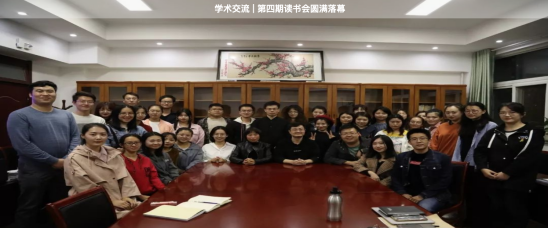
Undergraduate Programs (4-Year Programs)
• Ethnic Theory and Policy
Academic Master's Programs (3-Year Programs)
• Ethnic Theory and Policy
Doctoral Programs (4-6 Year Programs)
• Ethnic Theory and Policy
School Focus, Beliefs & Development Objectives
As we set sail again, the research team hopes to strengthen communication with colleagues in academic circles at home and abroad, keep up with the international academic frontiers of ethnic theory and policy research, expand new research fields, create new research traditions, and solve national, ethnic problems. The modernization of ethnic affairs governance contributes more wisdom.
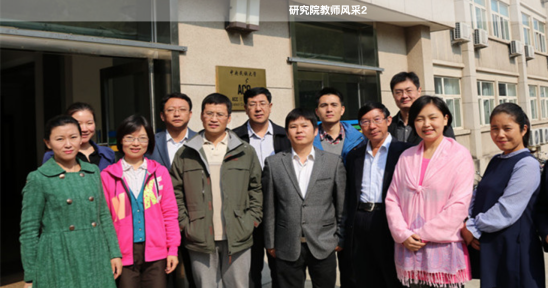
Our Talent
The institute has a strong team, distinctive research characteristics, and rapid development momentum. It has become an important center for the discipline and research of Chinese ethnic theory and ethnic policy. It has a relatively glorious history and substantial inheritance. It has always maintained a leading position in the research of socialist ethnic theory and policies with Chinese characteristics and has been researching ethnic issues during the social transformation period. More prominent results have been achieved in areas such as the new features of the world's ethnic issues and wider social influence.
The "National Ethnic Theory and Ethnic Policy Teaching Seminar," "National Ethnic Theory Special Academic Seminar," and "National Ethnic Theory Graduate Academic Seminar" organized by this institute have become permanent platforms and have greatly promoted relevant scientific research. Teaching exchanges of the public courses of "ethnic theory and ethnic policy" in ethnic minority nationality related schools promoted the development of disciplines and the cultivation of talents. In the course of decades of development, many talents have been delivered to the development and ethnic work of ethnic minority nationality areas in our country. The teachers, undergraduates, masters, and doctoral students trained by this unit are widely active in various fields and areas in ethnic areas. On all fronts of ethnic work, some of the best have become the vanguard and backbone of ethnic work and ethnic research.
Full-Time Staff: 18
Professors: 7
Associate Professors: 7
Institute Dean: Qing Jue (Vice President and)
Institute Secretary: Yi Ligui (General Party Branch of Scientific Research Platform)
Deputy Dean: Wang Jun
Administrative Office Contact: Liu Tao
Teaching Office Contact: Liu Liyan
Academic Activities
In 2015, the research strength and development momentum of the institute received great attention from the school. The school decided to establish an independent research institute, and its functions were repositioned:
1. The Minzu University of China supports the characteristic disciplines.
2. The school's scientific research and innovation platform, a think tank that provides decision-making consultation for national, ethnic affairs.
3. Marx A platform for public courses on democratic theory and ethnic policy.
Examples of Active Scholars
Yan Qing (严庆), Han Ethnicity
Professor
Ph.D. Ethnic Theory and Policy
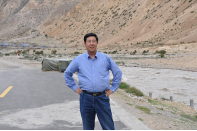
Yan Qing (严庆) was born in 1970, Han nationality, from Laoting, Hebei. He is a Professor, Doctoral Supervisor and Director of the teaching and research section of ethnic theory and ethnic policy.
Study and Work Experience
He graduated from the Department of Political Education of Hebei Normal University in 1992 with a bachelor's degree in law. From 1992 to 2007, he stayed in school and worked in teaching and administrative work at the Nationalities College Affiliated to Hebei Normal University; he was promoted to associate professor in 2006. From 2004 to 2007, he studied for a master's degree in Marxist ethnic theory at the Institute of Chinese Ethnic Theory and Ethnic Policy, Minzu University of China, obtained a master's degree in law in 2007.
Teaching Courses
Undergraduate Courses: ethnic theory and ethnic policy (compulsory course), ethnic politics, comparative politics;
Master Courses: Principles of Ethnic Politics, Regional Ethnic Issues and Their Governance; Introduction to Ethnic Theories and Policies
Research Interests
Ethnic politics, comparative government and politics, ethnic theory and ethnic policy and ethnic education.
Publications (Independent author, co-author, and co-editor of 11 academic works, representative works):
l "Conflict and Integration: Research on the Model of Ethnic Political Relations" (single work), Social Science Archives, 2011 edition
l "Research on China's Ethnic Policy and Its Practice Environment at the Current Stage" (co-author), Social Science Archives, 2011 edition
l "National Politics Journal" (Volume One, Two, Three) (Co-edited), Social Science Literature Press, 2011 edition
Papers (more than 130 academic papers, representative works_:
l "Concepts, Patterns, and Measures of National Integration," published in "Politics Studies," Issue 1, 2015;
l "A Review of the Development of Contemporary Chinese Ethnic Politics," - published in "Ethnic Studies," Issue 5, 2015;
l "From Concept Definition to Theory Application: A Review of Western Ethnic Conflict Studies," in Ethnic Studies, Issue 4, 2009;
Projects
He presided over 8 projects at the provincial level and above, including the National Social Science Fund Project, the National Social Science Fund Major Bidding Project Sub-project, the National Social Science Fund Major Entrusted Project Sub-project and a Central United Front Work Department Project.
Xiong Kunxin (熊坤新), Han Ethnicity
Professor and Doctoral Advisor
Ph.D. Ethnic Theory and Policy
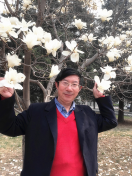
Xiong Kunxin (熊坤新), male, Han nationality, born in 1953, is a native of Santai, Sichuan, and is now a second-level professor of liberal arts at the Institute of Chinese Ethnic Theory and Policy, Minzu University of China. He is also a doctoral tutor under the national "211 Project" and "985 Project" contemporary China Researcher of Ethnic Theory and Ethnic Policy Research Center of the Strategic Research Base of Ethnic Issues, Reviewer of China Postdoctoral Foundation, Ph.D. in Sociology, Nehru University, India, Visiting Professor of Department of Political Science, Yeongnam University, South Korea. He has successively served as the director of the ethnic theory teaching and research section and the director of the ethnic policy teaching and research section of the Institute of Chinese Ethnic Theory and Ethnic Policy, Central University for Nationalities. He graduated from the Political Department of Tibet Nationalities Institute in 1982 with a bachelor's degree in philosophy and then stayed on as a teacher. From 1992 to 1993, he was selected to be a senior visiting scholar at Renmin University of China under Professor Luo Guojie. In 1994, he was transferred to the Minzu University of China to teach in the National Talent Recruitment in Beijing. From 1998 to 1999, he was sent by the Ministry of Education to study in the Department of Sociology, Nehru University, India, where he obtained a doctorate degree in sociology.
He is concurrently serving as the executive vice president of the Chinese Society of Ethnic Ethics, the executive director of the Chinese Society of Ethnology, the executive director of the China World Ethnography Society, the director of the Yanhuang Culture Research Association, the special correspondent of the "Ethics and Civilization" magazine, the vice president of the Chinese Society for the History of Reform and Opening-up and concurrently Secretary-General, Director of the Society for the History of Sino-Japanese Relations, Vice President of the Global Association for the Promotion of the Peaceful Reunification of the Chinese Motherland, Advisor of the China Doctoral Friendship Center, Policy Advisor of "China Buddhist Network", Advisor of "Human Rights Protection Times", etc.
Successively in "People's Daily", "Guangming Daily", "China Education News", "China Youth Daily", "Chinese Social Sciences", "Ethnic Studies", "World Nation", "Chinese Border Policy" (Taiwan), " he has published more than 400 essays. He has also published works in China Tibetology, and more than 30 independent or co-authored works have been published, with a total of more than 4 million words. Among the works are, "General Ethnology" (co-authored) was awarded by the National Civil Affairs Commission in 1993 First Prize in Social Sciences and "Science and Technology Ethics" (co-authored) and won the second prize of Outstanding Achievements in Humanities and Social Science Research of National Colleges and Universities in 1995.
Wang Dongli (王冬丽), Han nationality
Assistant Professor
Ph.D. Ethnic Theory and Policy

Wang Dongli (王冬丽) was born in October 1978 and is from Zhoukou, Henan Province. She has a Ph.D. and is currently an associate professor. In 2007, she joined the Institute of Chinese Ethnic Theory and Ethnic Policy at Minzu University of China. She has served in teaching and research work related to ethnic theory professional courses and public courses. Since joining, he has authored 1 monograph, participated in the compilation of 1 textbook, and published more than 10 papers.
She presided over and participated in the subject research of the National Ethnic Affairs Commission, Beijing Municipal Education and Work Commission, and Minzu University of China. Shee mainly teaches undergraduate courses such as "Chinese Ethnic Theory and Policy," "Religious Theory and Policy," and "The History of the Development of Chinese Communist Party Theory." In 2009, she was promoted to Associate Professor's title and had since been serving as a master's tutor in Marxist ethnic theory and taught the master's course "Research on the Development of Chinese Communist Party Ethnic Policy."
In September 2008, she won the third prize in "The Sixth Teacher Teaching Competition of Minzu University of China." In October 2008, he won the first prize in "National Theory and Ethnic Policy" Course Observation Teaching in National Minority Colleges. Apart from teaching and scientific research, she tries to do in-depth research and investigation in ethnic areas, feel the colorful beauty, understand the truth of the field, and advocate teaching and scientific research to present the beauty and truth based on reading on-site investigations.
School Slogan
Be the leading base for the teaching, scientific research and talent training encompassing ethnic theory and policies in China.

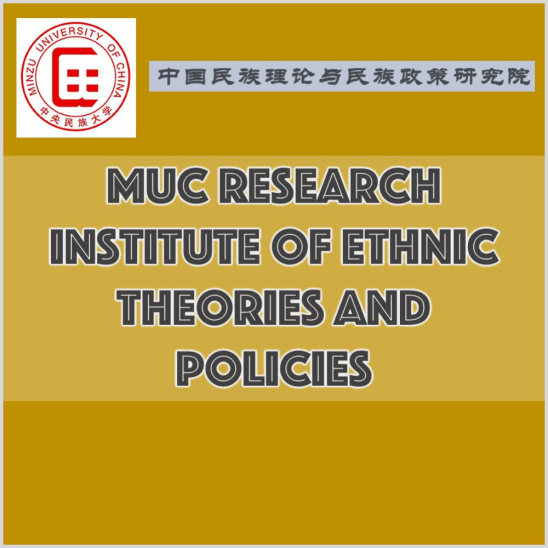
Official Website: https://minli.muc.edu.cn/